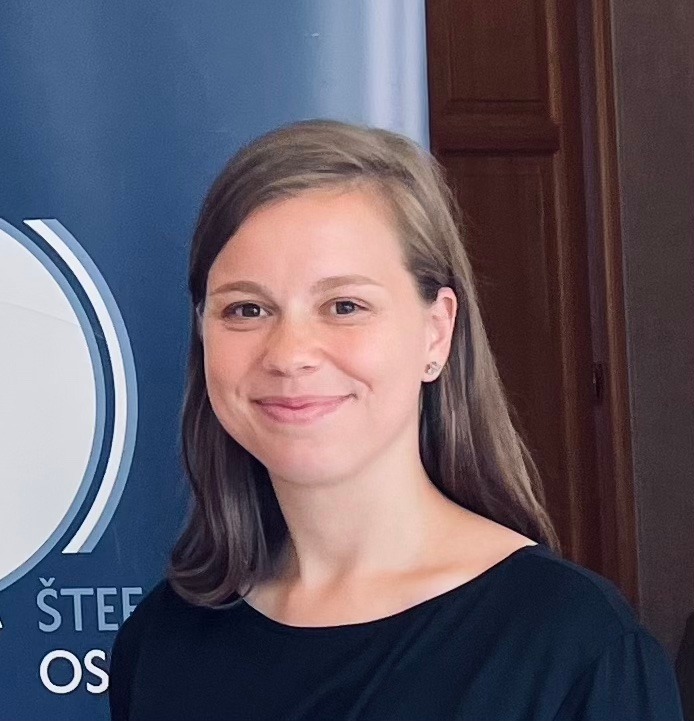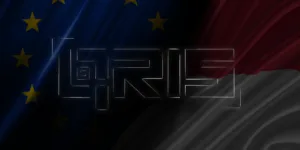Welcome to the 51st issue of the CEEasia Briefing.
In this issue, we dissect the following topics:
- EU’s investigation into TikTok
- Taiwan’s VP visits Czechia
- Sales of Slovak and Czech weaponry to Southeast Asia
- India signs FTA with European states
- Montenegro’s spat with China over Taiwan
If you like what you see, please forward this message to your friends and colleagues who can subscribe here.
Do you need to know more about East Asia? Don’t hesitate to shoot us a message about custom analysis tailored to your needs.
1. EU’s TikTok investigation
What’s going on? The European Commission (EC) has launched formal investigations into TikTok’s potential breaches of the EU’s Digital Services Act (DSA), which effectively functions as the bloc’s online content moderation rulebook. The alleged breaches concern TikTok’s design, advertising transparency, data access, and data protection.
Going deeper… The investigations were opened a year after the EC banned its staff from using the platform on their work devices due to security concerns. Later, the Commission designated TikTok’s parent company, ByteDance, as a “gatekeeper” under the Digital Markets Act (DMA), another legislation adopted to police social media platforms and make the online space more competitive. This occurred in the same month that the EU also fined TikTok €345 million for its previous breach of the child data protection rules, indicating the EU’s increasing wariness about the Chinese-owned platform.
At the same time… TikTok is not the only social media platform that the EU has fined or launched proceedings against. The first DSA-based inquiry was launched against X due to the platform’s failure to prevent the spread of disinformation. Indeed, the lax moderation of social media platforms concerning disinformation and deepfakes is of major concern to the EU. This is why the EC recently published guidelines on the platforms’ responsibility to mitigate systemic risks to electoral processes ahead of the upcoming European Parliament elections.
This means… The EU is increasingly siding with the US when it comes to its skepticism of TikTok and other Chinese tech giants. However, the EU’s TikTok investigations seem to have been prompted mainly by concerns about the privacy and competitiveness of its internal markets rather than national security. Still, this does not mean that the EU is neglecting the security aspect. But its institutional setting continues to challenge its broader security agenda, as seen in the continued utilization of TikTok by MEPs for their re-election campaigns.
2. Taiwan’s VP visits Czechia
What’s going on? Hsiao Bi-khim, Taiwan’s Vice-President-elect, visited the Czech Republic last week. According to official channels, upon the invitation of the Czech think-tank Sinopsis, Hsiao delivered a speech and met with the Senate speaker Miloš Vystrčil.
Going deeper… Hsiao’s visit immediately provoked a reaction from Beijing. The Chinese Foreign Ministry spokesperson urged the Czech government to ‘severely restrain certain Czech politicians and address the negative influence of this incident.’ China also emphasized its opposition to any official exchanges between Taiwan. The Czech Republic does not have official diplomatic ties with Taiwan. However, the country states it is against any attempt to change Taiwan’s current status forcibly, and its relations with Taipei have strengthened steadily in the past few years.
This means… This has not been the first instance of China reacting strongly to Prague’s actions in recent years regarding Taiwan. In 1995, during its visit to Prague, Taiwanese Prime Minister Lien Chan held discussions with Václav Havel regarding economic matters and democratic reforms in Taiwan. More recently, in 2019, Prague revoked its twin-city agreement with Beijing, choosing instead to establish ties with Taipei. This decision arose as then-mayor Zdeněk Hřib criticized mainland China. Lastly, in 2022, You Si-Kun, speaker of the Legislative Yuan, led the delegation that visited Prague at the invitation of Senate speaker Miloš Vystrčil.
Moreover… Hsiao’s trip to the Czech Republic was not the only one on her schedule. The Vice-President-elect made visits to Lithuania, Poland, and other countries in Europe, highlighting the significant rise in interaction between Taiwan and Europe across various domains.
3. Sales of Slovak and Czech weaponry to Southeast Asia
What’s going on? After Vladimir Putin’s attack on Ukraine, the interest in weapons and military technology procurements has surged globally. For the past two years, Malaysia has been evaluating offers in a public tender for purchasing sixteen to twenty-four 155mm self-propelled howitzers (SPH) for its army. According to the media, EVA howitzers developed by the Slovak state company Konštrukta Defence and the French CAESAR system are the frontrunners. The result of the tender is expected to be announced during the Defence Services Asia 2024 exhibition this May in Kuala Lumpur.
Going deeper… Malaysia is not the only Southeast Asian country that has been trying to modernize its army in recent years. Vietnam and Indonesia also spend significant amounts on their defense budgets.
Vietnam has been over the past two years looking to diversify its weapons supplies as it historically relied mainly on Soviet-derived equipment that can no longer satisfy its needs for more advanced technology. Indonesia is also expanding its defense budget with an aim to reach $9.7bn by 2028. For example, two years ago, Indonesia bought 42 French Rafale fighter jets and 12 new drones from Turkey. Malaysia is currently also procuring three long-range radars to monitor the airspace and maritime zones in the South China Sea, the point of tension with China.
This means… Once purchased, the newly-procured artillery is supposed to be deployed in the Sabah region of Malaysia, grappling with security challenges such as piracy and cross-border crime. If the Slovak SPHs win the Malaysian public tender, this would mean a €56 million to €84 million contract for Konštrukta Defence and Excalibur International, a Czech company that officially sells Slovak weapons and was bidding in the Malaysian tender together with the Slovak state company.
4. Indian FTA with European states
What’s going on? After 16 years of negotiation, India has signed a free trade deal with a four-member European Free Trade Association (EFTA), aiming to boost trade and secure $100 billion investment in the course of the next 15 years. Members of the EFTA include Switzerland, Iceland, Norway, and Lichtenstein. The South Asian country is currently EFTA’s fifth-largest trading partner after the EU, US, Britain, and China.
Going deeper… New Delhi has inked the deal just a few weeks before general elections. Economic development is a top priority for the currently ruling BJP government which expects its third consecutive re-election. The deal marks India’s first such pact with developed economies, seeking to lift Delhi’s protectionist barriers by reducing tariffs on various commodities ranging from industry to food & beverages and increase exports, especially in ITC and business services. The FTA also binds EFTA countries to invest $100 billion in India over the next 15 years. This would represent a more than 10-fold increase from $10 billion that has been poured into India over the past two decades.
This means… The Indian government promises to make India a developed country by 2047. To make it happen, it needs to keep its economy soaring by focusing on structural transformation and engaging its vast social capital, especially educated youth and women, into the labor market. The Indian Cabinet under PM Modi is furthermore negotiating FTAs with countries around the world, aiming to capitalize on Western efforts to decrease their dependence on China.
5. Montenegro’s spat with China over Taiwan
What’s going on? Montenegrin newspaper Vijesti has recently published an interview with Taiwan’s Representative to Hungary Liu Shih-chung, stating that Taiwan is an independent and sovereign country. The response from the Chinese embassy in Montenegro didn’t take long, and the newspaper was urged to withdraw the article.
Going deeper… Vijesti is owned by a media group of US-EU-British shareholders, suggesting its pro-Western and Euro-Atlantic orientation. As expected, the daily has refused to scrap the interview with the Taiwanese Representative. The Radio and Television Montenegro, a Montenegrin state-owned broadcaster, has since come out with an article by Chinese Ambassador to Montenegro Fan Kun about new opportunities for cooperation between China and Montenegro, hailing Chinese economic growth and outlining new means of cooperation in fields such as electromobility, renewables, and digitalization.
This means… Given Montenegro’s openly pro-European, westward-leaning tendencies and growing restraint towards the PRC under Prime Minister Spajić, it is no surprise that Montenegrin media is offering greater space to Taiwan. The playground for China has also been shrinking, especially since the end of the DPS government in 2020. Nevertheless, the Montenegrin government seems hesitant to close its doors to Beijing completely. China is bidding on the construction tender for the second and third parts of the controversial Bar-Boljare highway. Based on this, it seems that Taiwan has primarily symbolic significance in Montenegrin foreign policy, and the media fuss is unlikely to translate into broader implications for Taiwan-Montenegro relations.
Quick takes on CEEasia developments
CHINA | The European Union and China engaged in their 14th annual consultations focusing on issues such as the war in Ukraine, as well as security concerns in the Red Sea and the Indo-Pacific region.
TAIWAN | Kristo Enn Vaga, chair of the Estonian parliament’s Taiwan friendship group, led an 8-member Estonian cross-party delegation to Taiwan. The delegation met several high-ranking officials including President Tsai Ing-wen and Prime Minister Chen Chien-jen, discussing deepening of trade relations, technology cooperation, and opening of representative offices.
SOUTH KOREA | The Korean company Mobis Slovakia plans to build a new hall for the production of electric batteries for cars in the industrial park in Nováky in central Slovakia. The investment in the construction is expected to be approximately EUR 180 million and should create more than 300 new jobs.
JAPAN | Slovak’s Minister of Economy, Denisa Saková, signed a Memorandum of Understanding with Sekisui Chemical, a Japanese plastics manufacturer involved in the development of flexible photovoltaic panels. The MoU establishes the groundwork for close cooperation, particularly in identifying favorable conditions for Sekisui Chemical to enter the Slovak market.
PHILIPPINES | Philippine President Ferdinand Marcos Jr. visited Prague to meet with key political representatives of the Czech Republic, including the Czech President Petr Pavel. Both Presidents signed a series of Memoranda of Cooperation in trade and industry, especially the semiconductor and IT sectors. They also discussed support of the Czech Republic for the Philippine-EU Free Trade Agreement (FTA), Czech investments in Philippines’ minerals processing, and possible cooperation in the defense sector and agriculture.
SOUTH KOREA | The Slovak Ministry of Defense is considering purchasing mid-range anti-aircraft missile systems from South Korea. Options under consideration include the Korean PVO, as well as the US-Norwegian NASAMS and the Israeli Barak systems.
SOUTH KOREA | Czech Engineering Testing Institute (SZU) and the Czech Hydrogen Technology Platform (HYTEP) signed a Memorandum of Understanding and Mutual Cooperation with the Woosuk Hydrogen Fuel cell Regional Innovation Center (WFRIC). The signing of the agreement represents a significant step in collaboration within the realm of hydrogen technologies and fuel cells, marking a notable advancement in bolstering partnerships as well as fostering innovation within renewable energy.
ASIA | The Slovak government approved an increase of the so-called “national visas” to ease the process for admitting more workers from third countries and fill the gap in labor shortages in the industrial sector and transportation. The amendment has expanded the list of selected countries by India and also targets other Asian countries such as Indonesia, Nepal, the Philippines, Georgia, and Central Asia.












